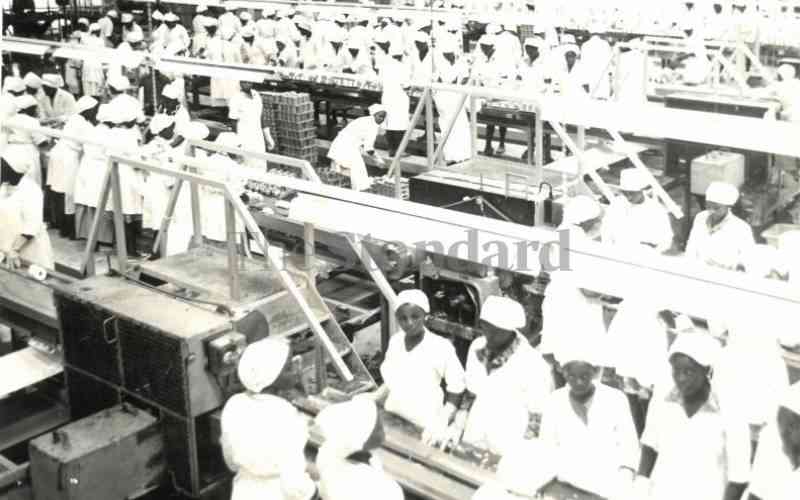×
The Standard e-Paper
Smart Minds Choose Us

Del Monte Kenya Canners workers inside the factory in Thika 1990s. [File, Standard]
Kandara is pregnant with expectation, Murang'a County is cheering on, hopeful that at long last a historical injustice will be corrected. Across the Chania Bridge in Kiambu, there is grumbling, gnashing of teeth and guarded optimism. At stake is a prime piece of 7,300 acres of land which has been released by a giant multinational, Del Monte, after the expiry of its lease.